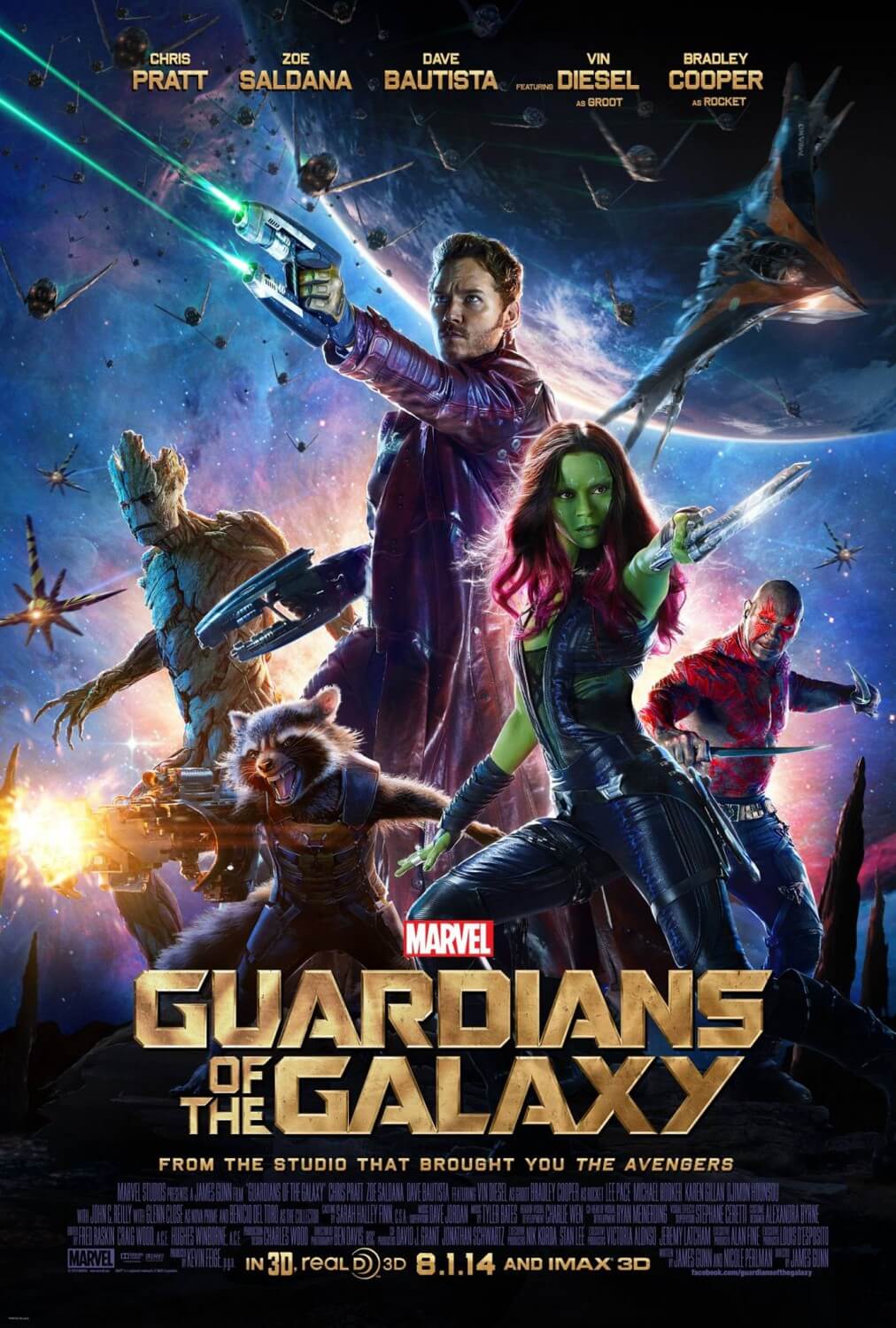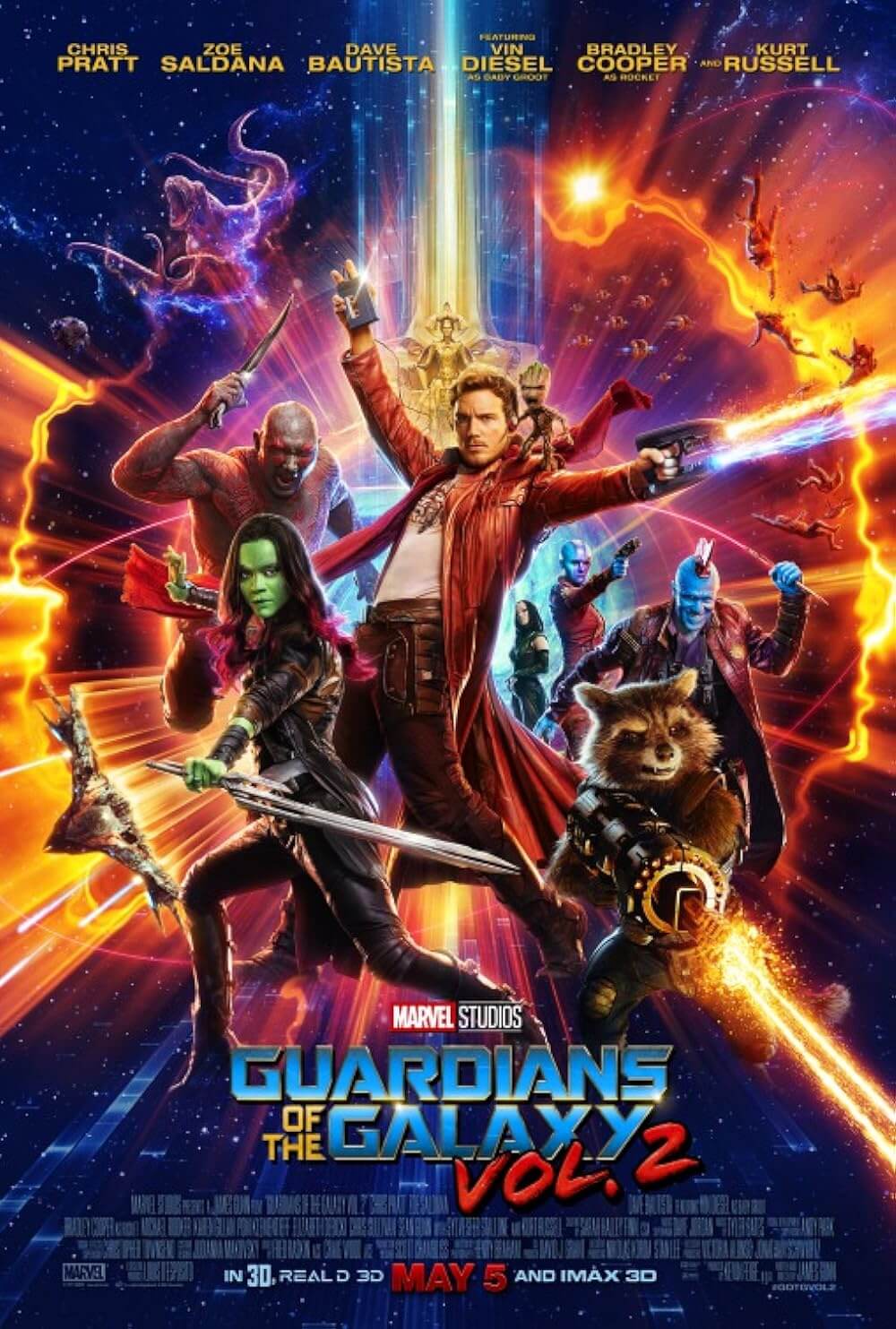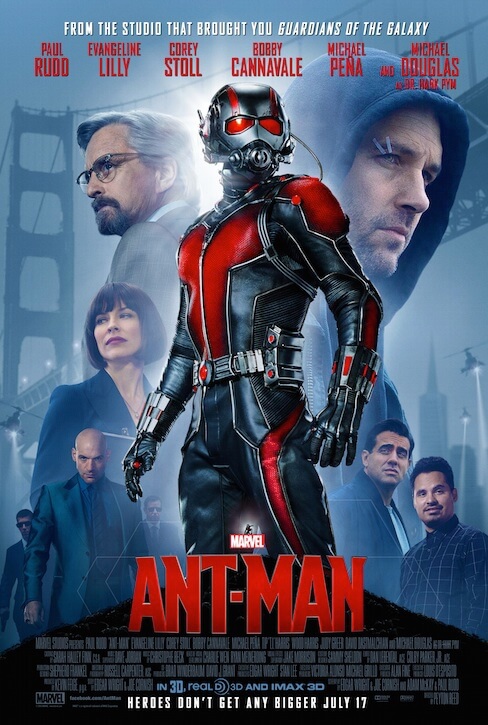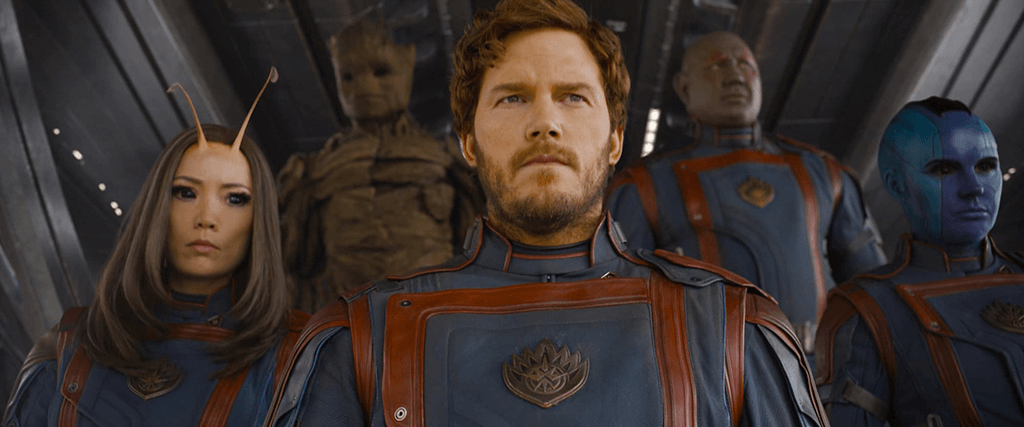
Guardians of the Galaxy Vol. 3
By Brian Eggert |
Watching Guardians of the Galaxy Vol. 3 makes you realize how seldom MCU movies conjure any significant feeling, apart from thrills and a few laughs. In most cases, they supply a fast-paced spectacle accented by some chummy dialogue and warm sentiment, delivering the kind of blockbuster escapism that doesn’t require much from the viewer. There’s a place for that sort of entertainment; though, it often earns scorn from critics for not amounting to more, for dulling moviegoer expectations, and for delivering a corporatized product that will offend no one. But with James Gunn’s return to Marvel (after a brief detour into the DCEU), he builds on the increasingly moving series and supplies fans with a worthy send-off to the characters he introduced in 2014. His last of three volumes, each marked by his distinct voice, Gunn’s heartfelt goodbye will make you chuckle, pull your heartstrings, and earn your tears. The writer-director’s affinity for misfit heroes and grotesque details somehow produces the most endearing underdog superhero team. Yet, Vol. 3 also includes a message, which viewers would be hard-pressed to find in most MCU offerings. Amid the familiar action and emotional resolutions in the so-called final Guardians of the Galaxy movie, there’s a commentary against animal testing and genetic experimentation that enhances the experience on emotional terms.
Gunn’s first Guardians of the Galaxy introduced many moviegoers to these obscure Marvel characters, who played minor, fringe roles in the comics. Nearly a decade later, they’re among the most cherished in the MCU as Gunn completes the trilogy, which features a rare congruity among the entries. Whereas the Iron Man and Ant-Man trilogies each feature a third part that tonally deviates from the two before (not an inherently bad trait), the Thor movies remain wildly inconsistent, and the Captain America movies feel less about the character and more about the plot surrounding him. Only Jon Watts’ contributions to Spider-Man and Gunn’s trio maintain a stable identity over three features. Moreover, Gunn remains unique among all MCU filmmakers for serving as director and screenwriter on each installment (he co-wrote the original with Nicole Perlman). So while the MCU after Avengers: Endgame (2019) feels like an unsatisfying hodgepodge of mostly passable hits and forgettable misfires, Gunn’s latest contribution reminds viewers of the overarching franchise’s heyday. Indeed, this is the best MCU movie in years.
Fans last saw the Guardians in 2022’s rather negligible The Guardians of the Galaxy Holiday Special on Disney+, which established at least two significant details: the team now resides in Knowhere, the city in the head of a Celestial being, and their dopey-but-heroic leader Peter Quill (Chris Pratt) is the half-brother of the empathic Mantis (Pom Klementieff), both fathered by Vol. 2’s Ego (Kurt Russell). All seems copasetic until the sudden arrival of Adam Warlock (Will Poulter), a superbeing engineered by the golden-skinned race known as the Sovereign. Adam—sent by his mother, Ayesha (Elizabeth Debicki), the villainess from Vol. 2, to collect Rocket (voiced by Bradley Cooper)—turns Knowhere into Swiss cheese and makes short work of the Guardians. The battle leaves Rocket nearly dead and sends Adam back to where he came from, wounded. Eventually, we learn that the High Evolutionary (Chukwudi Iwuji), the mad scientist with a god complex who engineered Rocket, needs the foul-mouthed rascal’s inventive brain to fulfill his life’s work and concoct a perfect humanoid society.
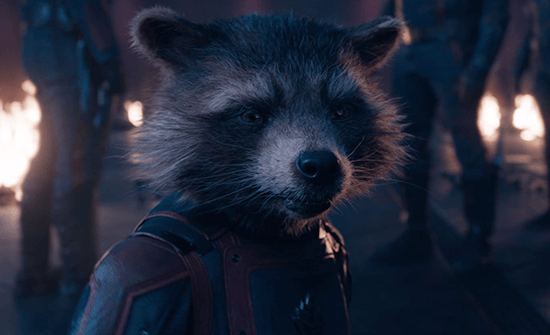 Refreshingly, the conflict of Vol. 3 isn’t about saving the galaxy from an all-consuming threat; rather, it’s about the Guardians setting out to save their friend. With Rocket incapacitated and medical help impossible due to a protective switch in his cybernetic components, the team must seek out a passcode to unlock his cybernetic parts. This requires them to enter one inspired set piece after another in pursuit of the MacGuffin. Fortunately, Gunn conceives of memorable backdrops, including the Cronenbergian space station called the Orgosphere—a fleshy mass growing in space and populated by a security force (headed by Nathan Fillion) in chunky skin suits that look like jetpacks sewn by Buffalo Bill. Later, the team lands in the 1980s equivalent of suburbia on Counter-Earth, the High Evolutionary’s seemingly perfect planet, which he has populated with various species of humanoid animals (bat people, octopus people, etc., most rendered with admirable actor-in-a-suit practicality). But they’re imperfect creations according to the High Evolutionary, whose motto is “Be not as you are but as you should be.”
Refreshingly, the conflict of Vol. 3 isn’t about saving the galaxy from an all-consuming threat; rather, it’s about the Guardians setting out to save their friend. With Rocket incapacitated and medical help impossible due to a protective switch in his cybernetic components, the team must seek out a passcode to unlock his cybernetic parts. This requires them to enter one inspired set piece after another in pursuit of the MacGuffin. Fortunately, Gunn conceives of memorable backdrops, including the Cronenbergian space station called the Orgosphere—a fleshy mass growing in space and populated by a security force (headed by Nathan Fillion) in chunky skin suits that look like jetpacks sewn by Buffalo Bill. Later, the team lands in the 1980s equivalent of suburbia on Counter-Earth, the High Evolutionary’s seemingly perfect planet, which he has populated with various species of humanoid animals (bat people, octopus people, etc., most rendered with admirable actor-in-a-suit practicality). But they’re imperfect creations according to the High Evolutionary, whose motto is “Be not as you are but as you should be.”
To be sure, the High Evolutionary’s tests to create a perfect being result in all manner of abominations, some heartbreaking, some terrifying. Rocket’s traumatic memories of his origin are interspersed in the action—often awkwardly and without a structural or narrative prompt. Most of these scenes occur from within a grim cage, where the cub recovers from horrific surgeries while befriending several other animal test subjects: An otter with robot arms, a bunny with spidery legs and a metal mouth, and a walrus with wheels instead of hind flippers. Their bond as maligned and hopeful lab fodder is aching to endure for any friend of animals. I watched these scenes with a persistent lump in my throat, tears welling up in my eyes, and constant worry that Rocket might not survive the movie. Though, I imagine that the ASPCA would approve of Gunn’s shock treatment methods. By the finale, which finds our heroes saving not only their fellow humanoids but all animals from the High Evolutionary’s spaceship, the viewer recognizes the value of all life without Gunn making any direct statements against animal cruelty and genetic modifications (though they remain central themes). Still, a late scene involving Rocket and company protecting villagers from wild dog-like creatures might counteract this point.
Even so, on the more monstrous side, the High Evolutionary protects himself with an army of cybernetic creatures that look like concepts for Alita: Battle Angel (2019), making for a memorable throng of baddies for the Guardians to shoot their way through once the movie’s explosive third act arrives. Their sheer variety and creativity give Vol. 3 an advantage over the usually anonymous horde of enemies found in epic MCU battle sequences (the identical aliens in The Avengers, the robots in Age of Ultron, etc.). Sure, Gunn relies on a saturation of CGI, but there’s no single moment where our eyes gloss over and digital blindness sets in—instead, there’s always something distinct onscreen, always something tangible. The shootouts, combat, and space battles all unfold with clarity and memorable fun, often leaning into their inherent absurdity. But be warned: the movie’s willingness to represent gory moments and downright disturbing animal hybrids may prove too jarring or scary for some, despite Gunn’s habit of deflating morbid alien creatures and viscera with unconventional cuteness or humor. Along with his single use of “fucking” and the nightmarish imagery he uses, Gunn’s film remains on the margins of the typical blockbuster, which, for this critic, contains far more visual distinction than most of the recent Star Wars movies or shows.
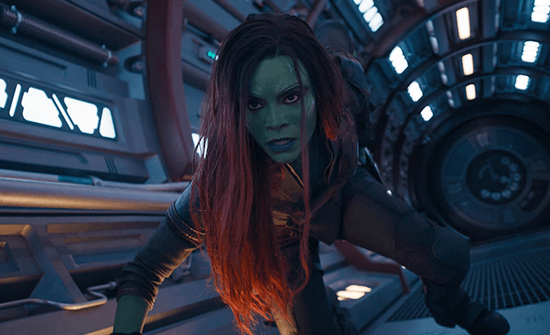 Fortunately, such details only support Gunn’s affecting character work. After the events in Infinity War (2018) and Endgame, Quill mourns the late Gamora (Zoe Saldaña), leaving the alternate timeline’s Gamora rightfully unconvinced by Quill’s insistence that they could work as a couple—after all, this version of Gamora barely knows Quill, so why should she fall into his arms? Gunn resists the temptation to bring the two together, leaving their subplot tenderly tragic instead of pandering. The combative, mocking dynamic between Mantis, Nebula (Karen Gillan), and Drax (Dave Bautista) eventually softens into a makeshift family. Groot (voiced by Vin Diesel) remains the heart of their group, while Rocket’s presence, primarily in memories for much of the 150-minute runtime, feels minor compared to earlier volumes but also central to everything onscreen. On the periphery back on Knowhere, subplots involving Kraglin (Sean Gunn) teaching himself to use Yondu’s yaka arrow, and Kraglin’s hilarious refusal to acknowledge Cosmo the Spacedog (voiced by Maria Bakalova) as a “good dog,” prove delightful. Of course, plenty of other characters make brief appearances in the film’s many subplots and asides, but they tend to be more about Gunn embracing this world one last time than ungainly inclusions.
Fortunately, such details only support Gunn’s affecting character work. After the events in Infinity War (2018) and Endgame, Quill mourns the late Gamora (Zoe Saldaña), leaving the alternate timeline’s Gamora rightfully unconvinced by Quill’s insistence that they could work as a couple—after all, this version of Gamora barely knows Quill, so why should she fall into his arms? Gunn resists the temptation to bring the two together, leaving their subplot tenderly tragic instead of pandering. The combative, mocking dynamic between Mantis, Nebula (Karen Gillan), and Drax (Dave Bautista) eventually softens into a makeshift family. Groot (voiced by Vin Diesel) remains the heart of their group, while Rocket’s presence, primarily in memories for much of the 150-minute runtime, feels minor compared to earlier volumes but also central to everything onscreen. On the periphery back on Knowhere, subplots involving Kraglin (Sean Gunn) teaching himself to use Yondu’s yaka arrow, and Kraglin’s hilarious refusal to acknowledge Cosmo the Spacedog (voiced by Maria Bakalova) as a “good dog,” prove delightful. Of course, plenty of other characters make brief appearances in the film’s many subplots and asides, but they tend to be more about Gunn embracing this world one last time than ungainly inclusions.
Certain realities prevent Gunn from coloring too far outside the MCU lines. When Rocket has a chance to shoot the bad guy execution-style in the finale, he doesn’t take it, whereas the characters in Gunn’s R-rated The Suicide Squad (2021) may not have hesitated. Just when it seems like some characters may retire from superheroing, a post-credits scene suggests otherwise. Disney would never let the Guardians of the Galaxy retire, even if certain actors won’t be back for future sequels or appearances in other galactic MCU movies. Despite such conforming obligations to the MCU, Gunn’s work registers as that of a filmmaker with a personal vision for his comic book universe and the freedom to explore it. He remains the only auteur working within Marvel guidelines, applying his twisted sense of humor, gruesome pageantry, and warmhearted penchant for roguish families to a mega-budget extravaganza. With Gunn leaving the MCU once more to oversee the DC Comics properties for Warner Bros., the idea of Marvel movies just became even less compelling. Fortunately, he ended his run on a high note.
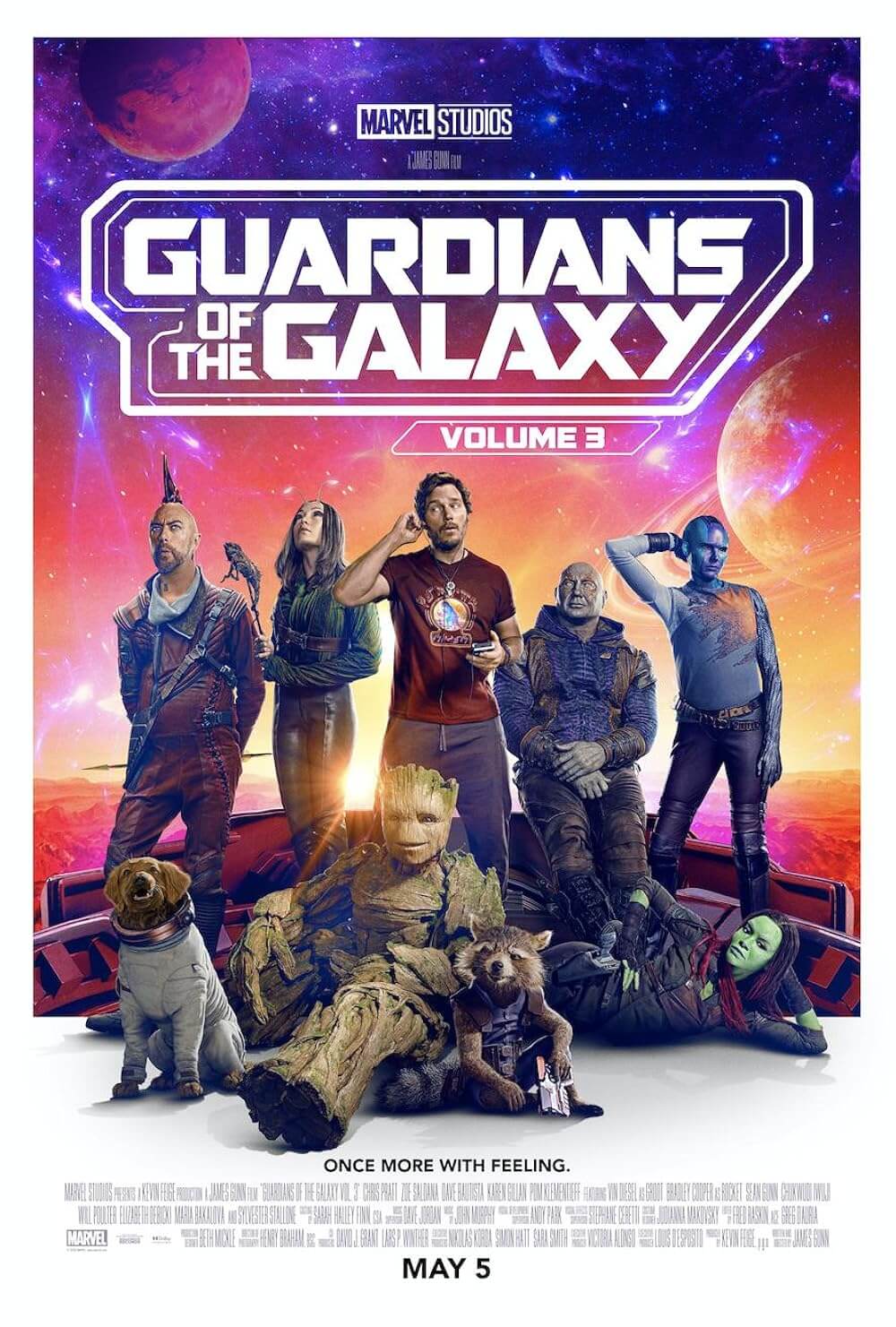
Thank You for Supporting Independent Film Criticism
If the work on DFR has added something meaningful to your love of movies, please consider supporting it.
Here are a few ways to show your support: make a one-time donation, join DFR’s Patreon for access to exclusive writing, or show your support in other ways.
Your contribution helps keep this site running independently. However you choose to support the site, please know that it’s appreciated.
Thank you for reading, and for making this work possible.
Brian Eggert | Critic, Founder
Deep Focus Review


